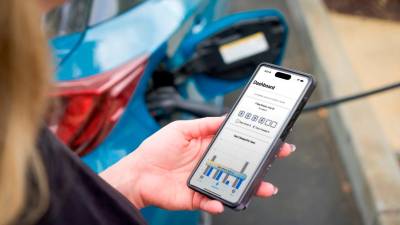THE Toyota Research Institute (TRI) has revealed new research showing how behavioural science can play a major role in improving electric vehicle (EV) charging habits, ultimately cutting carbon emissions more effectively.
The studies, carried out in both the United States and Japan, tested a prototype app called ChargeMinder, designed by TRI’s Human-Centred Artificial Intelligence division.
Instead of relying purely on technology, the research highlighted how subtle behavioural nudges can change the way people interact with their vehicles. In the US, plug-in hybrid (PHEV) drivers increased their charging frequency by around 10% thanks to targeted interventions.
Meanwhile, in Japan, both PHEV and battery electric vehicle (BEV) users shifted a significant portion of their charging to hours with the highest renewable energy supply – nearly 59% more than before – which translated to about 30 minutes of extra daytime charging per vehicle each day.
Beyond the environmental benefits, the experiments also improved driver satisfaction. In the US, PHEV owners reported a 16-point increase in satisfaction levels, with every participant ending up fully satisfied with their vehicles.
The underlying message from TRI is clear: reducing emissions is not only about engineering more advanced vehicles but also about guiding people towards smarter usage. Electrified cars, whether hybrids or fully electric, deliver their greatest environmental benefit when charged frequently and at the right times of day. Without changes in behaviour, their full potential to cut carbon cannot be realised.
TRI sees behavioural science as a powerful and scalable way to complement infrastructure and financial incentives. Unlike the costly and time-consuming process of building public charging networks or rolling out subsidies, behaviour-focused interventions can be rolled out quickly and at minimal expense, while still producing measurable results.
The ChargeMinder app puts this concept into practice. It combines a series of subtle but effective tools such as timely reminders, progress streaks, positive reinforcement, and short interactive quizzes, that make learning about charging behaviour more engaging.
Laboratory tests found that personalised reminders were up to 50% more effective than generic notifications. Importantly, the platform has been designed to protect privacy, with the ability to securely handle data from vehicle telematics and charging locations while tailoring interventions to individual users.
TRI is already planning the next stage of development. Working closely with Toyota’s Carbon Neutral Centre, the team intends to push ChargeMinder towards even more personalised, data-driven interventions, ensuring that the behavioural element remains central to Toyota’s global carbon neutrality strategy.
For Toyota, this marks another step in bridging the gap between human behaviour and technological progress. The company believes that technologies built with people’s habits in mind will be just as important as hardware advances in the shift towards cleaner mobility.
